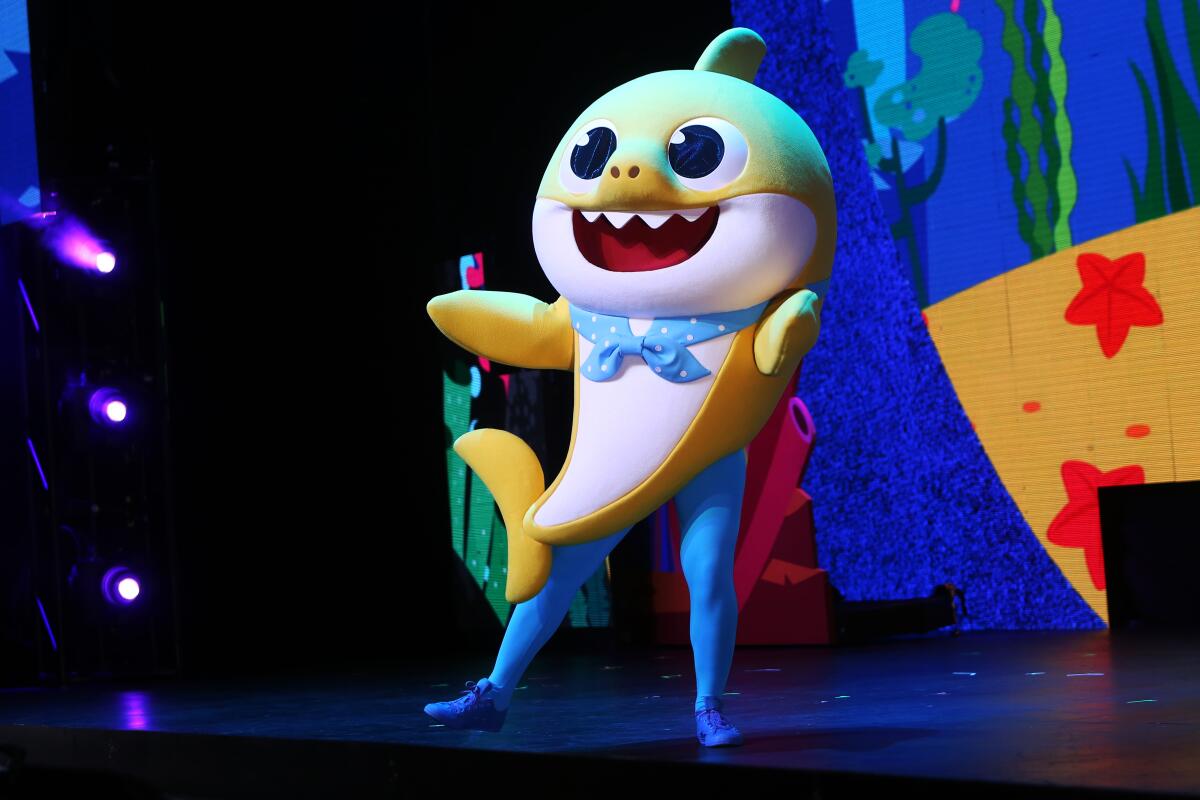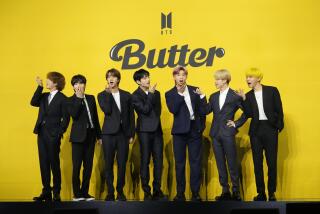‘Baby Shark’ makes millions for family behind infectious tune

It was practically the anthem for this year’s World Series, with tens of thousands of Washington Nationals fans clapping in unison and belting out “Baby Shark, doo-doo doo-doo doo-doo.”
In Lebanon, it became a rallying cry after a video of protesters singing to soothe a frightened toddler went viral. And in many other places, the earworm has drawn derision, with late-night comedian Jimmy Kimmel suggesting its creator should be jailed for life.
To the contrary, the catchy tune about a family of sharks has become so lucrative that the Korean family behind it is now sitting on a rapidly growing multimillion-dollar fortune.
Kim Min-seok co-founded closely held SmartStudy Co. in 2010, and five years later its children’s educational brand, Pinkfong, released “Baby Shark.” His father runs Samsung Publishing Co., which also owns part of the startup. The family fortune, based on stakes held by Kim’s immediate relatives in those two companies, is now about $125 million — much of it thanks to the song.
SmartStudy declined to comment on the family’s wealth.
Shares of Samsung Publishing soared 89% the week the World Series began as local media reported on the song’s surging popularity among U.S. baseball fans. Nationals outfielder Gerardo Parra began using it as his walk-up music in June, leading to crowd singalongs with shark-jaw gestures, scenes that echoed across TVs as the team broke out of an early-season slump. They rode the wave all the way to the championship.
The Kim family owns 63% of Samsung Publishing, which, in turn, owns 21% of SmartStudy. Kim also directly owns a 23% stake in the startup, which Bloomberg valued by comparing it to four publicly traded peers.
Kim, 38, hardly set out to write a hit global song. After working at gaming companies including Nexon and developing content for kids at Samsung Publishing, he co-founded SmartStudy to focus on the growing market for educational content for smartphones.
The app-to-video maker’s early days were tough, but eventually grew faster as the Baby Shark video became a sensation, Chief Financial Officer Seungkyu Lee said in a January interview. Last year, the startup’s revenue jumped about 47% to 40 billion won ($34.3 million).
The song has amassed more than 3.8 billion views on YouTube and this year reached the Billboard Hot 100 chart. There’s also a concert experience for children, Baby Shark Live!
Yoojung Lee writes for Bloomberg.
More to Read
Inside the business of entertainment
The Wide Shot brings you news, analysis and insights on everything from streaming wars to production — and what it all means for the future.
You may occasionally receive promotional content from the Los Angeles Times.








